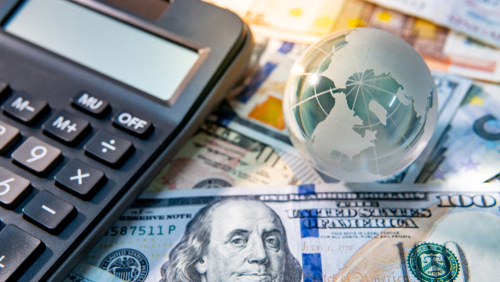There is cautious optimism among economists about the global economy, according to the latest Chief Economists Outlook released by the World Economic Forum.

The report found that 82 percent of chief economists expect the global economy to either strengthen or remain stable this year. That total is nearly double the proportion in the previous WEF report. Also, the share of those predicting a downturn in global conditions declined from 56 percent in January to 17 percent in this report.
“The latest Chief Economists Outlook points to welcome but tentative signs of improvement in the global economic climate,” Saadia Zahidi, managing director, World Economic Forum, said. “This underscores the increasingly complex landscape that leaders are navigating. There is an urgent need for policy-making that not only looks to revive the engines of the global economy but also seeks to put in place the foundations of more inclusive, sustainable and resilient growth.”
The survey, however, said that geopolitical and domestic political tensions cloud the horizon. Specifically, some 97 percent of respondents anticipate that geopolitics will contribute to global economic volatility this year while 83 percent said domestic politics will be a source of volatility in 2024.
In the United States, the survey revealed a significant boost in the outlook as 97 percent of all chief economists expect moderate to strong growth this year. That is up from 59 percent in January.
Expectations for China are slightly less optimistic, with 75 percent expecting moderate growth and only 4 percent predicting strong growth this year. And the outlook for Europe remains gloomy, with nearly 70 percent of economists predicting weak growth for the remainder of 2024.
The survey also revealed that 86 percent of respondents said tensions between political and economic dynamics will be a growing challenge for decision-makers this year, while 79 percent expect heightened complexity to weigh on decision-making. Other factors expected to affect corporate decision-making are the overall health of the global economy, monetary policy, financial markets, and labor market conditions. Further, 73 percent of economists believe that companies’ growth objectives will drive decision-making, almost double the proportion that cited the role of companies’ environmental and social goals.
Longer term, most chief economists are upbeat about the prospects for a sustained rebound in global growth. Specifically, 70 percent are expecting a return to 4 percent growth in the next five years while 42 percent said within three years.
High-income countries said they expect growth to be driven by technological transformation, artificial intelligence, and the green and energy transition. The factors that are expected to be a drag on growth include geopolitics, domestic politics, debt levels, climate change and social polarization.
Finally, the policy levers that are most likely to foster growth in the next five years include innovation, infrastructure development, monetary policy, and education. There is a notable lack of consensus on the impact for growth of environmental and industrial policies.